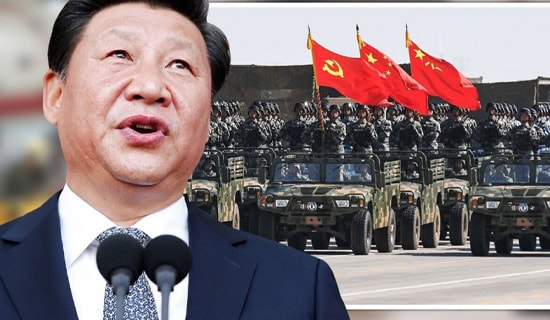Against the backdrop of the Egypt events, Saudi and Jordanian columnists have continued to criticize the U.S. foreign policy in Egypt and across the Middle East.[1] They argued that Egypt had lost its status in the region because it had followed the U.S.'s policy, which weakened the Arab countries while serving Iranian interests. The columnists also criticized the U.S.'s confused reaction to Egyptian protests, saying that although America's goal had been to win favor with the protesters and to keep Egypt in the U.S. camp, its reaction had achieved the opposite effect: it had enraged the Egyptians and caused America to lose its allies.
Following are excerpts from some articles on this subject:
Al-Hayat Columnist: Thanks to America's Foreign Policy, Iran Can Achieve Hegemony Even Without Nuclear Weapons
Columnist 'Abd Al-'Aziz Al-Sweid wrote in the London-based daily Al-Hayat: "...Egypt is bound by the peace agreement with Israel, and, [thanks to this agreement,] no enemy directly threatens its border. However, this agreement and its implications [also] bound [Egypt] to America's foreign policy, so that it was helplessly dragged into the U.S.'s fraudulent 'war on terror.'
"Fooled by the promises of peace in the region, [Egypt] handed the reins of foreign policy to the U.S. and Israel. In the recent period, it grew weaker than ever before, and it is growing weaker still. Its morale plummeted and it lost its central role [in the region] – and all for no reward from the U.S. that could salvage its political honor.
"[The deterioration] didn't stop there, because, by running after America's political promises, Egypt left a vacuum that was filled by Iran and its proxies, who took up the slogans and beat the drums [of protest], creating a rift between the [Egyptian] regime and people. The U.S. policy is unreliable. Its ultimate [goal] in the region is [to ensure] Israel's security and superiority over its neighbors.
"What derailed Mubarak's foreign policy and caused it to fail was this blind following [of the U.S.]. One of the ludicrous aspects of America's foreign policy is that while urging the Arab countries to rally against Iran, it has helped to overthrow [Arab] regimes and to weaken countries that played a balancing role in the region – starting with Iraq, which has been handed over to Iran, and continuing with Pakistan and Afghanistan, and now also Egypt, which is suffering the birth-pangs of a new regime of unknown character...
"America is present at the birth and the death [of regimes], and the funny thing (or perhaps the sad thing) is that in all cases it serves [the interests] of Iran, which needs nothing more than America's foreign policy in order to achieve hegemony [even] without possessing nuclear weapons... Those who bought into America's foreign policy in the region must bear the consequences. Those who put their hand in America's should not be surprised to find themselves without a hand, and perhaps also without a head, which has been replaced with another."[2]
Columnist in Saudi Al-Watan: Obama's Policy in the Middle East Has Failed
SUPPORT OUR WORK

In the Saudi daily Al-Watan, columnist 'Abd Al-'Aziz Hamad Al-'Awishak likewise criticized Obama's policy in the Middle East: "...America's abandonment of the Egyptian leadership was as complete as it was swift... Why has America abandoned one of the pillars of its policy in the region?
"In order to answer this, we must remember that U.S. policy in the Middle East has seen one failure after another since Obama took office in 2009, costing it a significant amount of its influence and credibility in the region. Since [the U.S.] does not want to lose Egypt altogether, it has hastened to urge Mubarak to step down, hoping this would keep Egypt in the American camp. It has encouraged him to hand over the government at the first possible opportunity to a candidate who agrees [with the U.S.] over the strategic direction Egypt [should take], and who will prevent [Egypt] from becoming an enemy to [U.S.] policy in the region.
"The repercussions of [Obama's] failure are evident across the region. The Egyptian public awoke after the Tunisian public succeeded in ousting president Zine Al-'Abidine Ben 'Ali – another U.S. ally – from power. The direction of Tunisia's foreign policy following the regime change is still unclear, but its government is expected to alter its approach to the American ally, which was party to the abandonment of [Ben Ali].
"In Iraq, the U.S. was forced to share its influence with Iran, after waging a war that cost the lives of thousands of American troops, beyond the three trillion dollars that went toward toppling Saddam Hussein and leaving Iraq a [U.S.] ally.
"In Syria, the new American administration tried to adopt a new style – different from the style of the Bush administration, which strove to isolate Syria – sending an American ambassador [there] for the first time since 2005. In an unusual move, President Obama appointed Ford as ambassador to Damascus, contrary to [the position of] Congress, which for a long time blocked [Obama's attempts] to appoint an ambassador [to Syria]. However, this positive step vis-à-vis Syria did not stop the decline of American influence.
"In Lebanon, Iran and Syria's allies managed to overthrow the majority government, and the Americans believe that the new government will steer Lebanon into the pro-Iranian camp, posing an additional threat to U.S. influence in the region.
"In Afghanistan and Pakistan, America is bogged down in a war against the Taliban and Al-Qaeda, whose outcome is unknown – a war which does not have the support of the majority in either country and which may threaten the [very] existence of their governments.
"In Israel – America's primary ally in the region – the government is openly and unflinchingly rejecting America's demands to revive the peace talks and stop [the building in] the settlements. Rather than pressuring Israel to change its position, the U.S. has relinquished its mediation [efforts] and unwillingly accepted the Israeli position. This last example is perhaps one of the main reasons for the decline of American influence and for its loss of allies in the region. [The latter] gambled on the new American administration adopting a more evenhanded policy vis-à-vis Israel [and are now sobering up]..."[3]
Jordanian Broadcasting Authority Director: "All that Is Left for Barack Obama to Do... Is to... Come Swiftly to Cairo [and] Join the Rebels in Tahrir Square"
In an article in the London-based daily Al-Sharq Al-Awsat, Saleh Al-Qallab, director-general of the Jordanian Broadcasting Authority, harshly criticized the U.S. president, saying: "All that is left for Barack Obama to do... is to board the presidential plane, come swiftly to Cairo, join the rebels in Tahrir Square and raise Mohamed ElBaradei's fists high while saying to President Mubarak, through the biased [television] channels... 'Leave, leave, o spiller of blood. The era of oppression is already over.'
"The American administration should not have been confounded by the intifada of the Egyptian youth. One would expect a [country] that has been the sole power in the world since the fall of the Soviet Union... to be capable of gauging the sentiment of the Egyptian public and of following the political trends in the most important country in the region... where it has numerous strategic and [other] essential interests... A country of this caliber should not have [demonstrated] such bewilderment. The American president should not have lost his head and cheered Dr. ElBaradei, who, after being absent from Egypt for many years, returned from Vienna in haste with the dream of being the Khomeini of the Egyptian revolution...
"Some assess that... the American president, who is striving to improve his standing ahead of the next elections... wanted to prove himself to the American voters by presenting himself as a hero [capable of] bringing reforms and democracy to the Arab Middle East without tanks and wars, and without shedding [even] a single drop of American blood, as opposed to George Bush...
"Perhaps the American president… did not anticipate that his populist, inciting statements and declarations would yield the opposite result [of what he intended]... His hasty statements did not win the favor of Egypt or its people, [but, on the contrary,] enraged them and led them to reject [his words] and all outside intervention in their domestic affairs... In light of all this, there is nothing left to say to the Americans but what 'Abd Al-Rahman Al-Dakhil [founder of the Umayyad Emirate of Córdoba in Andalusia in eighth century CE], said when asked why the Umayyad [empire] had collapsed: 'You abandoned your friends and lost them; you tried to curry favor with your enemies but failed to win them over.' Naturally, at the top of the [U.S.'s] list of enemies are the Muslim Brotherhood and all those who have good, strong relations with Iran."[4]
[1] For previous Arab criticism of the U.S. handling of the Egyptian crisis, see MEMRI Special Dispatch No. 3559, " The Middle East Crisis XVIII – Egyptian, Arab Reactions to U.S. Handling of Egypt Crisis: U.S. Is Selling Out Its Allies, Interfering in Egypt's Affairs in Pursuit of Own Agenda," February 3, 2011, The Middle East Crisis XVIII - Egyptian, Arab Reactions to U.S. Handling of Egypt Crisis: U.S. Is Selling Out Its Allies, Interfering in Egypt's Affairs in Pursuit of Own Agenda.
[2] Al-Hayat (London), February 6, 2011.
[3] Al-Watan (Syria), February 8, 2011.
[4] Al-Sharq Al-Awsat (London), February 9, 2011.




